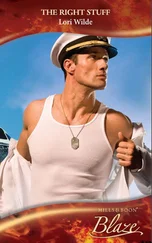Tom Wolfe - The Right Stuff
Здесь есть возможность читать онлайн «Tom Wolfe - The Right Stuff» весь текст электронной книги совершенно бесплатно (целиком полную версию без сокращений). В некоторых случаях можно слушать аудио, скачать через торрент в формате fb2 и присутствует краткое содержание. Жанр: Современная проза, на английском языке. Описание произведения, (предисловие) а так же отзывы посетителей доступны на портале библиотеки ЛибКат.
- Название:The Right Stuff
- Автор:
- Жанр:
- Год:неизвестен
- ISBN:нет данных
- Рейтинг книги:3 / 5. Голосов: 1
-
Избранное:Добавить в избранное
- Отзывы:
-
Ваша оценка:
- 60
- 1
- 2
- 3
- 4
- 5
The Right Stuff: краткое содержание, описание и аннотация
Предлагаем к чтению аннотацию, описание, краткое содержание или предисловие (зависит от того, что написал сам автор книги «The Right Stuff»). Если вы не нашли необходимую информацию о книге — напишите в комментариях, мы постараемся отыскать её.
The Right Stuff — читать онлайн бесплатно полную книгу (весь текст) целиком
Ниже представлен текст книги, разбитый по страницам. Система сохранения места последней прочитанной страницы, позволяет с удобством читать онлайн бесплатно книгу «The Right Stuff», без необходимости каждый раз заново искать на чём Вы остановились. Поставьте закладку, и сможете в любой момент перейти на страницу, на которой закончили чтение.
Интервал:
Закладка:
Joe Walker was feeling good. In August he had pushed the X-15 just about as fast as the Little Engine could take it, to a new world speed record of Mach 3.31, or 2,196 miles per hour. After he landed it on Rogers Lake, he cut loose with a cowboy yell that startled everyone on the radio circuit: "Yippeeeee!" That was Joe Walker. A week later Bob White went up in the X-15 and set a new altitude record of 136,500 feet, or slightly more than twenty-five miles. It had been a perfect flight. It was as much as you could expect from the Little Engine. The conditions had been almost precisely the conditions of space flight. He took the ship up in a ballistic arc, the same sort of arc the Mercury-Redstone vehicle was supposed to go on… someday… He experienced five g's during the rocket thrust on the way up. An astronaut in Mercury was supposed to experience six. He was weightless for two minutes as he came up over the top of the arc. An astronaut was supposed to be weightless for five minutes. At 136,500 feet the air was so thin, White had no aerodynamic control at all. It was absolutely silent up there. He could see for hundreds of miles, from Los Angeles to San Francisco.
It was much like the Mercury flights were supposed to be—except that Bob White was a pilot from beginning to end! He was in control! He took the ship up and he brought it back down through the heavy atmosphere and he landed it at Edwards! He didn't splash down in the water like a monkey in a bucket! Bob White's picture wound up on the cover of Life . There was Justice, there was Logic, in the universe, after all. Bob White on the cover of Life ! For a solid year Life had been the fraternity bulletin for the Mercury astronauts. But now even Henry Luce and that bunch had woken up to the truth. Perhaps they had been betting on the wrong horses! Right? Walker and White and Crossfield could afford a little jealousy now… toward one another for a change. People from the TV show This Is Your Life had turned up at Edwards and were talking to everybody they could find who knew Joe Walker. This was one of the most popular shows on television, and it was run like a surprise party; the subject, in this case Walker, didn't learn about it until the moment of the show itself, after a biography of him had been put together on film. Scott Crossfield had a book contract, to write his autobiography, and Time-Life was talking to Bob White about a contract like the astronauts'.
Bob White was all right. You could read the cover story they had already written about him in Life , and you could see that White had not unbent so much as one inch for the occasion. You could see them straining to manufacture one of those "personality profiles" about White, and all he would give them was the Blue Suit and a straight arrow. That was Bob White.
A True Brother!
9 — The Vote
Even the scenery was depressing. There was nothing to see but the snow blowing over the road and the stunted countryside rolling by in slow motion. Between Langley and Arlington even the woods looked stunted. There had been a buzzard the day before, but the landscape was all so raggedy it didn't even look good in the snow. Over the car radio he could hear John F. Kennedy delivering his inaugural address. The reception was poor, and the broadcast kept fading in and out through the static. The announcer, who spoke in hushed tones as if he were describing a tennis match, had said that it was seventeen degrees in Washington and a wind was blowing on Capitol Hill and Kennedy was bareheaded and wore no overcoat. Kennedy had his voice set at a strangely high pitch. He seemed to be screaming to keep warm. He was screaming a great many sonorous rhetorical figures. The words merely drifted by John Glenn, as he drove, like the snow and the stunted scrub pines outside.
That was ironic, because at first Loudon Wainwright thought that Glenn was totally absorbed in the new President's inaugural address. He kept fiddling with the dial, battling the static, trying to make the broadcast come in better. When Wainwright made the occasional comment, Glenn had no response at all. Wainwright was one of the Life writers assigned to the personal stories of the astronauts, and he had come to know Glenn fairly well. At this very moment Glenn was giving him a lift to National Airport before heading home. If John had been determined to digest every single word and nuance of Kennedy's address, it would not have been terribly surprising. John was one of those rare celebrities who came pretty much as advertised. He really was serious about God, country, home, and hearth. He probably even had it in him to take a Presidential inaugural address seriously. But then Wainwright noticed that John not only wasn't reacting to what he said, he wasn't reacting to what Kennedy said, either. He was a thousand miles away, as the saying goes, and not particularly happy to be there.
The curious thing, in light of what happened yesterday, was that for about three months the intense competitive feeling among the seven of them had died down. The entire Mercury project, the astronauts included, had been in serious—no, horrendous —trouble. After the MA-1 fiasco and the Popped Cork fiasco, it had no longer been a question of which one of them was going to get the first flight, but whether any of them would go into space at all, or even continue to bear the title astronaut .
Naturally it would have been crushing to Bob Gilruth, Hugh Dryden, Walt Williams, Christopher Kraft, and all of the NASA brass to have Mercury canceled for delays or ineptness or whatever. But not so crushing as it would have been to the Mercury astronauts! Oh, no! To be pronounced the seven bravest lads in America, the fearless pioneers of space, to be on the cover of Life , to have factory workers in San Diego agonize over your hide and every sweet little Konakai cookie on both shores lust over it… and then to be told, "Thanks a lot, but we've called the whole thing off"… They would become factory seconds! They would be back in uniform, in the Air Force, the Navy, and the Marines, saluting and flapping in the breeze as the seven most laughable duds in the service!
One had only to imagine it… and it was easy to imagine by late 1960. All of them, astronauts, administrators, engineers, technicians, were suddenly in such trouble that a wagon-train phase began. Everyone, from top to bottom, began pulling together like pioneers besieged in the pass. It was now of supreme importance to push the Mercury-Redstone program forward before the new President and his science advisor, Wiesner, had time to go to work on NASA. The frantic hope was to complete some tests that would bring the program so close to the first manned flight that Kennedy could hardly afford to dismantle Project Mercury without letting them have at least one try. So everyone rode hell-for-leather for the top of the next hill, and never mind the ordinary precautions. The number of unmanned tests was cut down drastically. Tests were scheduled one on top of the other, so that the first manned flight might be scheduled within three months. They were ready to try things they would never have thought of doing before. Rather than prepare a new rocket for the next test, they used the one that had been left on the pad after the Popped Cork fiasco. After all, it hadn't blown up; it had merely refused to leave the ground.
That was the spirit of the hour—ride! mas alla ! over the next hill! don't look back!—when Bob Gilruth called in Glenn and the other six for a meeting at the office at Langley just before Christmas. Gilrath had always been a sympathetic soul around the seven of them; and now that the cowboy rush was on, his concern for them was written all over his face. The message seemed to be: "It's terrible, but I may have to send one of you boys up without all the precautions that I would like to take." When they assembled in his office, he told them he wanted them to take a little "peer vote," along the following lines: "If you can't make the first flight yourself, which man do you think should make it?" Peer votes were not unknown in the military. They had been used among seniors at West Point and Annapolis for some time. For that matter, during the selection process for astronaut, the groups of finalists at Lovelace and Wright-Patterson took peer votes. But peer votes had never amounted to anything more than what they were prima facie : an indication of how men at the same level regarded one another, whether for reasons of professionalism or friendship or jealousy or whatever. Pilots regarded peer votes as a waste of time, because a man either had the right stuff in the air or he didn't, and a military career, particularly among those with "the uncritical willingness to face danger," was not a personality contest. But there was something about Bob Gilruth's deep concern… They were to think the whole thing over and put their choices down on paper and drop them off at Gilruth's office. The look on Bob Gilruth's face set off a neural alarm.
Читать дальшеИнтервал:
Закладка:
Похожие книги на «The Right Stuff»
Представляем Вашему вниманию похожие книги на «The Right Stuff» списком для выбора. Мы отобрали схожую по названию и смыслу литературу в надежде предоставить читателям больше вариантов отыскать новые, интересные, ещё непрочитанные произведения.
Обсуждение, отзывы о книге «The Right Stuff» и просто собственные мнения читателей. Оставьте ваши комментарии, напишите, что Вы думаете о произведении, его смысле или главных героях. Укажите что конкретно понравилось, а что нет, и почему Вы так считаете.











